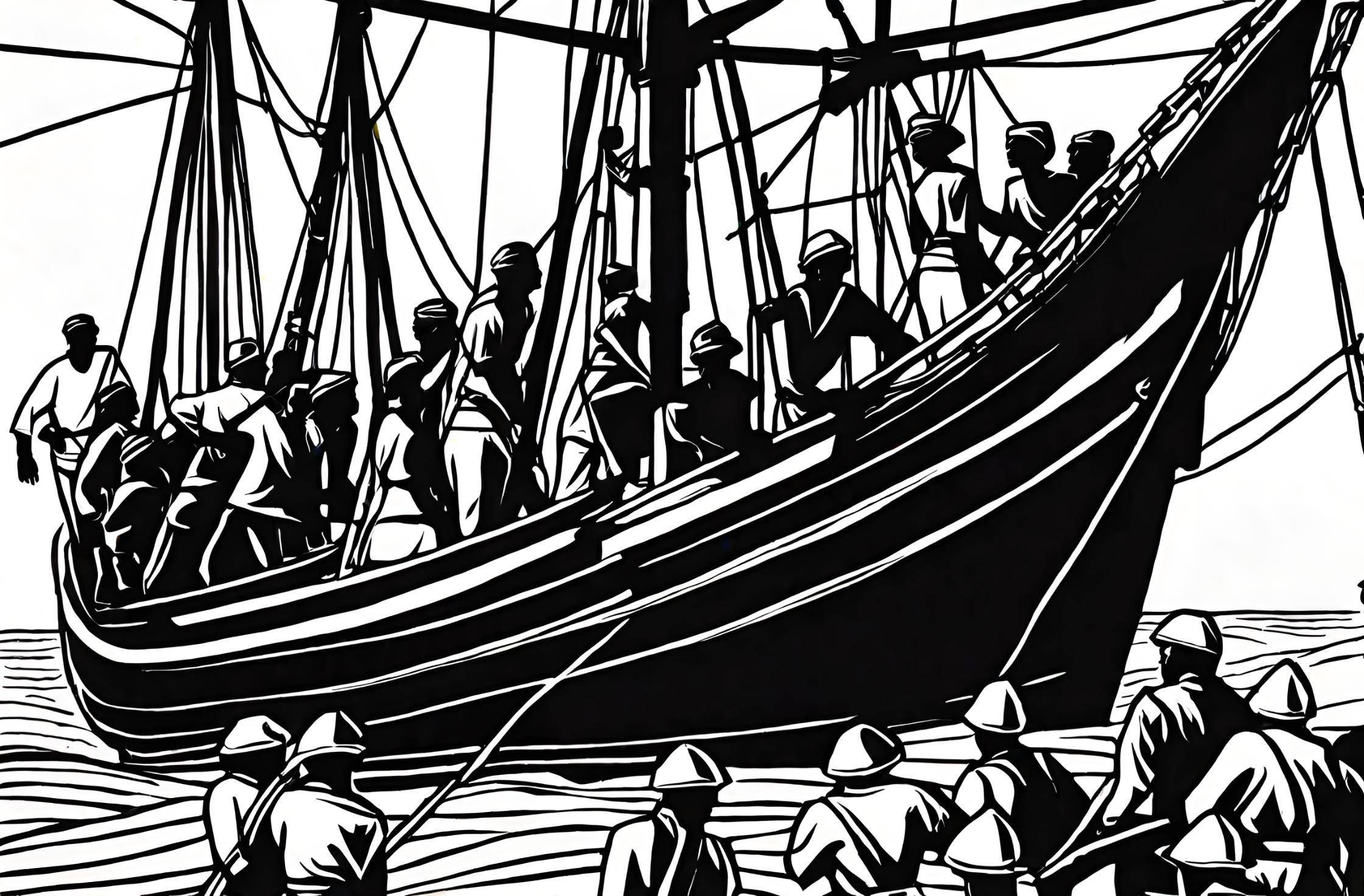Flashback to January 24
American History

On January 1, 1808, a monumental event took place that would significantly shape the future of international relations, human rights, and society as we know it today. This event was the abolition of the transatlantic slave trade, a critical turning point in human history. The effects of this event are still felt today, more than two centuries later.
The slave trade, a horrific period in our global history, marked the forced migration of millions of Africans to the Americas. This brutal practice was central to the global economy, particularly the dominant European powers of the time, including Britain, Portugal, and Spain. Profit derived from the exploitation of human beings was incorporated into the fabric of many societies and its abolition, though crucial, created massive ripples.
Although the abolishment of the slave trade came into effect on January 1, 1808, the groundwork for this significant event was laid several years earlier. The clamor for abolition steadily gained momentum in the late 18th century, thanks to tireless campaigners such as William Wilberforce, Olaudah Equiano, and Thomas Clarkson, who shed light on the unbearable conditions faced by enslaved Africans. Their relentless activism garnered substantial public support, which led to the passage of the Slave Trade Act in 1807 by the British Parliament.
Despite the abolition of the slave trade, the practice of slavery continued in many parts of the world, including the US, until the introduction of further legislation. In the US, the final emancipation was not issued until January 1, 1863, with the Emancipation Proclamation. Nonetheless, the abolition of the slave trade marked a defining moment in history, a stance against gross human rights violations, and one of the first major steps towards eradicating the systemic bondage of African people.
The end of the slave trade is not just a historical date to remember; it is also a marker of progress in the global movement towards human rights and equality. It sparked a wave of reform that would eventually lead to the emancipation of slaves in many parts of the globe. This event has influenced many contemporary dialogues on race relations, social justice, equality, and reparations.
In retrospect, the end of the slave trade proves the power of collective action against oppressive systems. It stands as a testament to the undeniable rights of every individual to freedom, dignity, and respect – cornerstones of our modern understanding of human rights. It serves as a constant reminder of our shared responsibility to strive towards a more equitable world, free from exploitation and dehumanization.
The abolition of the slave trade also played a significant role in reshaping the cultural and demographic landscape of the Americas, the Caribbean, and Europe. The African diaspora, borne out of these forced migrations, has contributed significantly to cultural pluralism in these regions, influencing music, literature, cuisine, and language, among other aspects.
In closing, while the end of the slave trade on January 1, 1808, marks a moment of victory against oppressive practices, it is crucial to remember that the fight for justice and equality still continues today. As we honor this historic day, let it remind us of the necessity to continue to challenge systemic inequality and implore us to engage in critical conversations to ensure a more fair and inclusive society.
As a society, we must strive to remember, learn, and teach future generations about the impact of this watershed event. Its influence is still seen and felt today, in our ongoing discussions about race, human rights, and equality. Let the end of the slave trade be a constant reminder of the power of collective action, and the lengths humanity can go in its pursuit of justice, decency, and freedom.
We strive for accuracy. If you see something that doesn't look right, click here to contact us!
Sponsored Content

US performs nuclear test…
On January 24, 1979,…

Stephen Gardner Champlin Brigadier…
Stephen Gardner Champlin, a…

Moving picture of a…
On January 24, 1925,…

James “Shep” Shepherd, rocker…
On January 24, 1970,…

